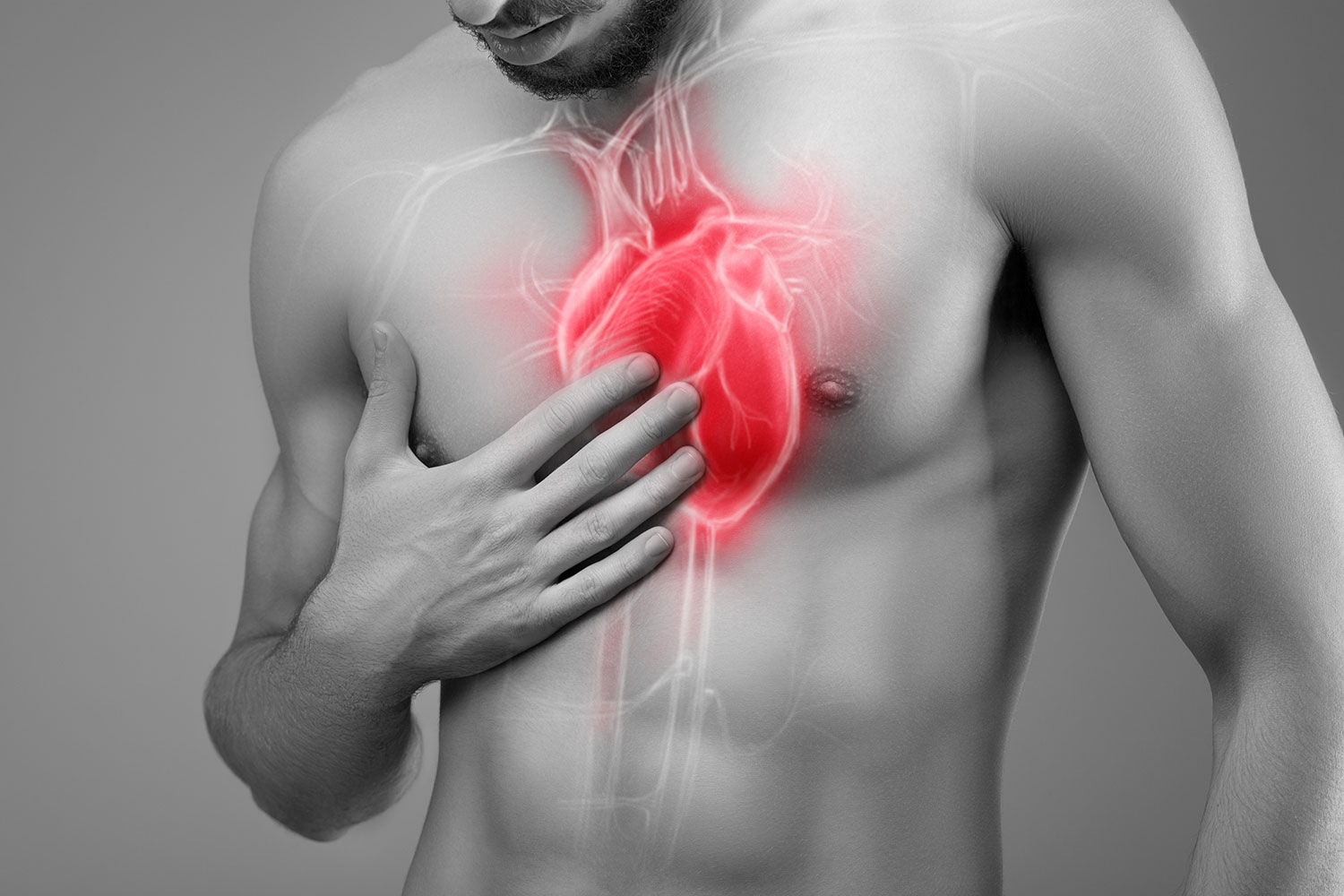Next steps after seeing a Cardiologist near me
Wiki Article
Understanding the Significance of Cardiology in Modern Healthcare Providers
Cardiology plays a crucial duty in modern-day health care, specifically as cardiovascular disease remains to be the leading source of death worldwide. Developments in diagnostics and treatment have actually transformed person treatment, enabling earlier interventions and enhanced results. The shift in the direction of preventive cardiology equips individuals to handle their wellness proactively. As technology proceeds to develop, the assimilation of ingenious remedies might further redefine cardiology's effect on public health and wellness, prompting a more detailed evaluation of arising fads and their implications.The Occurrence of Heart Condition and Its Impact on Public Wellness
Heart condition continues to be the leading cause of death internationally, its effect prolongs far beyond private clients to influence public health and wellness systems and economic situations. The high occurrence of heart condition positions a significant strain on healthcare sources, requiring increased funding for therapy, avoidance, and rehabilitation programs. Public health efforts have to deal with threat elements such as excessive weight, smoking, and inactive way of lives, which contribute considerably to the increasing incidence of heart conditions.Moreover, the economic burden connected with heart problem is immense, encompassing not just straight medical prices but additionally indirect costs associated with lost efficiency and early death. Communities face obstacles in handling these costs, typically leading to differences in medical care accessibility and end results. As the population ages and lifestyle-related threats proceed to intensify, the urgency for efficient cardiology treatments comes to be extremely important. Addressing heart illness is not only a matter of specific wellness however also a crucial public health top priority.Developments in Cardiac Diagnostics and Imaging Techniques
Recent innovations in heart diagnostics and imaging techniques have revolutionized the field of cardiology, improving the capability to monitor and detect cardiovascular disease. Strategies such as cardiac MRI, CT angiography, and echocardiography have actually become significantly sophisticated, offering thorough pictures of cardiac frameworks and features. These methods enable for the very early recognition of conditions like coronary artery disease, cardiac arrest, and valvular disorders.Moreover, innovations in non-invasive diagnostics, such as wearable modern technology and remote tracking devices, have encouraged individuals and doctor. These tools assist in real-time monitoring of heart rhythms and other crucial indicators, bring about prompt interventions. In addition, expert system is being incorporated into imaging evaluation, enhancing accuracy and effectiveness in diagnosis.Innovations in Therapy Options for Heart Conditions
Current developments in cardiology have actually caused significant advancements in therapy choices for heart disease. These include advanced surgical techniques that enhance procedural end results and arising medications that supply new opportunities for therapy. As the field advances, these advancements play a crucial duty in improving individual care and outcomes.Advanced Surgical Techniques
Innovations in surgical strategies have transformed the landscape of cardiology, using new wish for patients with heart disease. Minimally invasive treatments, such as catheter-based interventions, have significantly minimized recovery times and healthcare facility remains. Strategies like robotic-assisted surgical procedure enhance precision, enabling surgeons to navigate complicated anatomical structures with higher accuracy. Improvements in imaging technology facilitate real-time visualization throughout procedures, boosting outcomes. Transcatheter aortic valve replacement (TAVR) exemplifies an advancement in dealing with aortic constriction, enabling valve substitute without open-heart surgical treatment. Additionally, hybrid approaches that combine medical and catheter-based techniques supply tailored options for different heart concerns. These sophisticated medical techniques not just boost individual safety but likewise increase treatment options, emphasizing the crucial function of advancement in contemporary cardiology techniques.Arising Medicines and Therapies
As the landscape of cardiology proceeds to progress, arising therapies and medications play a critical role in boosting treatment alternatives for heart disease. Advancements such as novel anticoagulants and advanced lipid-lowering representatives have changed the management of cardiovascular conditions, significantly decreasing individual morbidity and mortality. Furthermore, the advancement of gene treatments and regenerative medicine provides appealing methods for treating conditions previously considered irreversible. Scientific tests are continuously exposing the efficacy of these therapies, pushing the limits of traditional treatments. The combination of digital wellness innovations facilitates individualized medication, allowing for customized therapy strategies based on genetic and way of living aspects. Collectively, these improvements underscore the dynamic nature of cardiology, enhancing individual end results and redefining criteria of treatment in modern medical care.The Role of Preventive Cardiology in Person Treatment
Preventative cardiology plays a necessary role in patient treatment by focusing on the recognition of risk aspects that add to heart condition. Through lifestyle modification techniques and very early discovery techniques, health care suppliers can properly decrease the incidence of cardiovascular events - Cardiology care. This positive strategy not only enhances patient results yet likewise advertises long-term health and wellnessThreat Element Identification
While cardiovascular diseases remain a leading cause of morbidity and death worldwide, effective risk factor recognition works as a foundation of precautionary cardiology. Identifying threat variables such as hypertension, hyperlipidemia, diabetes mellitus, and household background is essential for very early treatment. Health care experts make use of various screening approaches to evaluate these factors, enabling customized preventative measures. In addition, recognizing a patient's way of living options, such as smoking and physical lack of exercise, even more informs danger assessments. This detailed evaluation makes it possible for clinicians to establish personalized care strategies targeted at mitigating dangers. By prioritizing threat aspect identification, medical care systems can improve person end results and decrease the general worry of heart diseases, inevitably adding to boosted public health techniques and resource appropriation.Way Of Life Alteration Methods
A wide range of researches highlights the essential duty of lifestyle alteration strategies in decreasing cardiovascular disease risk. These strategies include nutritional adjustments, boosted physical activity, cigarette smoking cessation, and weight monitoring. By embracing a heart-healthy diet plan rich in fruits, vegetables, whole grains, here and lean healthy proteins, individuals can lower cholesterol degrees and high blood pressure. Normal physical task enhances the heart and enhances overall cardio wellness. Additionally, stopping cigarette smoking greatly lowers the danger of cardiovascular disease and improves recovery rates for those with current problems. Weight management additionally adds to cardio health and wellness by alleviating various other threat variables such as diabetes mellitus and hypertension. Implementing these way of living changes not only promotes specific well-being but likewise acts as a cornerstone of precautionary cardiology in patient treatment.Very Early Detection Methods
Lifestyle modifications considerably add to decreasing heart disease threats, however they are most reliable when coupled with early discovery techniques. Preventive cardiology stresses the importance of determining possible heart concerns prior to they escalate right into significant conditions. Methods such as blood pressure tracking, cholesterol screening, and progressed imaging technologies like echocardiograms play crucial roles in assessing cardio health. Biomarkers and genetic testing additionally enhance the accuracy of early discovery, enabling tailored precautionary approaches. Regular heart threat examinations empower doctor to intervene proactively, potentially stopping heart assaults and strokes (Cardiology Jupiter). By integrating these very early detection techniques right into routine treatment, people can gain from timely lifestyle interventions and targeted treatments, eventually enhancing results and improving top quality of lifeIntegrating Technology Into Cardiology Practices
As improvements in innovation continue to reshape different areas, the assimilation of innovative devices and systems into cardiology practices has ended up being essential for boosting patient treatment and outcomes. Telemedicine platforms permit cardiologists to check people from another location, enhancing access to care while decreasing the problem on medical care centers. Wearable devices, such as smartwatches, allow constant heart price surveillance, notifying both patients and doctors to prospective issues in real-time. Furthermore, synthetic knowledge (AI) is being used to evaluate substantial quantities of heart information, aiding in very early diagnosis and tailored treatment strategies. Advanced imaging methods, consisting of 3D echocardiography, boost visualization of heart structures, leading to a lot more specific treatments. Digital health documents (EHRs) simplify person info monitoring, making sure that cardiologists have instant access to crucial information. With each other, these technical developments are changing cardiology, promoting aggressive management and boosted health outcomes for individuals with cardio problems.The Relevance of Patient Education and Interaction
Person education and engagement play a critical duty in the administration of cardiovascular wellness. By furnishing patients with knowledge concerning their conditions, therapy options, and way of living changes, doctor empower people to take an active duty in their treatment. This aggressive technique can cause improved adherence to recommended drugs, nutritional adjustments, and workout programs, eventually decreasing the risk of complications.Engagement also cultivates a solid patient-provider partnership, motivating open interaction and trust. When patients feel educated and entailed, they are extra likely to voice worries and ask inquiries, which can lead to better medical end results. Additionally, instructional sources, such as workshops or electronic platforms, can improve understanding and promote self-management approaches. On the whole, prioritizing patient education and visit this page learning and engagement is crucial for boosting cardio health, improving lifestyle, and minimizing healthcare prices related to heart diseases.Future Fads in Cardiology and Their Prospective Influence

Regularly Asked Inquiries
What Way Of Living Modifications Can Decrease Cardiovascular Disease Threat?
The current concern addresses lifestyle modifications that can substantially reduce heart problem risk. Cardiology. Adopting a well balanced diet plan, taking part in routine exercise, maintaining a healthy weight, managing stress, and preventing check my source tobacco can significantly boost cardio health and wellnessExactly How Can I Acknowledge Very Early Signs of Heart Issues?
Recognizing early signs of heart problems entails tracking symptoms such as breast pain, lack of breath, fatigue, and uneven heart beat. Timely understanding of these indications can prompt essential medical analysis and intervention for far better outcomes.What Are the Distinctions In Between Cardiologists and Cardiac Surgeons?
The distinctions between cardiologists and heart surgeons depend on their duties; cardiologists mostly handle and detect heart conditions via non-invasive techniques, while heart specialists do surgeries to correct architectural heart problems. Each plays an essential, unique function.
Just how Usually Should I Get My Heart Health And Wellness Checked?
The regularity of heart health and wellness checks differs based on individual danger variables. Usually, grownups should undergo evaluations every one to 2 years, while those with status quo may require more frequent assessments as encouraged by healthcare specialists.What Function Does Genetics Play in Cardiovascular Disease Risk?
Genes substantially affects heart problem threat, with familial patterns indicating acquired problems. Certain genetics can predispose individuals to high blood pressure, cholesterol concerns, and other cardio problems, highlighting the relevance of genetic testing in reviewing heart health and wellness. Heart disease continues to be the leading cause of death internationally, its effect prolongs much beyond individual clients to influence public health systems and economic climates. Public health and wellness initiatives should resolve risk aspects such as excessive weight, smoking cigarettes, and less active way of lives, which contribute considerably to the climbing occurrence of heart conditions.Moreover, the financial concern linked with heart disease is enormous, incorporating not only direct medical expenses yet likewise indirect expenses connected to shed productivity and premature mortality. Precautionary cardiology plays a vital function in patient treatment by concentrating on the identification of danger aspects that add to heart condition. Synthetic intelligence (AI) and device learning are improving diagnostics and client tracking, making it possible for very early detection of heart diseases. The distinctions in between cardiologists and heart specialists exist in their duties; cardiologists mainly handle and identify heart conditions through non-invasive approaches, while heart surgeons carry out surgical treatments to remedy structural heart issues.Report this wiki page